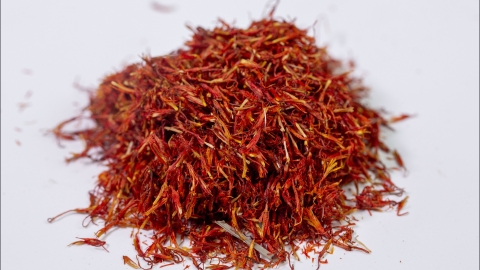Which Three Types of People Should Avoid Drinking Saffron?
Generally speaking, there is no such saying as "which three types of people should not drink saffron." The main groups who should avoid saffron include pregnant women, individuals with bleeding disorders, patients with hyperthyroidism, patients with hypothyroidism, and children. Detailed explanations are as follows:
1. Pregnant Women
Saffron has a strong blood-activating effect and can promote uterine contractions. Consumption by pregnant women may lead to abnormal uterine contractions, causing abdominal pain and vaginal bleeding. In severe cases, it could even lead to miscarriage, posing significant risks to both fetal and maternal health. Therefore, pregnant women must absolutely avoid consuming saffron.

2. Individuals with Bleeding Disorders
People with bleeding disorders, such as hemophilia, thrombocytopenic purpura, or leukemia, already have impaired blood clotting functions. The blood-activating properties of saffron may further reduce blood coagulation ability, potentially leading to consequences such as increased gum bleeding, worsening skin bruising, or even internal bleeding. Therefore, these individuals should not consume saffron.
3. Patients with Hyperthyroidism
Patients with hyperthyroidism inherently have accelerated metabolism and heightened sympathetic nervous system activity. Certain components in saffron may affect the nervous system and metabolic functions, potentially worsening symptoms such as palpitations, hand tremors, and excessive sweating, which is detrimental to disease management. Therefore, patients with hyperthyroidism should avoid consuming saffron.
4. Patients with Hypothyroidism
Patients with hypothyroidism have insufficient thyroid hormone secretion and slower body metabolism, often accompanied by symptoms such as fatigue and cold intolerance. Saffron is slightly cold in nature and has certain regulatory effects on bodily functions. It may exacerbate coldness in the body or interfere with hormonal balance in patients with hypothyroidism, affecting recovery. Therefore, this group should avoid consuming saffron.
5. Children
Children's organs are not fully developed, and their digestive and nervous systems are relatively weak. Saffron contains complex components with certain physiological activity. After consumption, children may be unable to metabolize these substances normally, leading to adverse reactions such as gastrointestinal discomfort or nervous system abnormalities, which may affect their growth and development. Therefore, children should avoid consuming saffron.
In addition, women during menstruation should also be cautious. If menstrual flow is heavy, consuming saffron may further increase the flow or prolong the menstrual period. People with gastrointestinal diseases such as gastric ulcers or duodenal ulcers may experience increased mucosal irritation and worsened discomfort after consumption. If unsure whether it is suitable for personal consumption, it is recommended to consult a healthcare professional.




